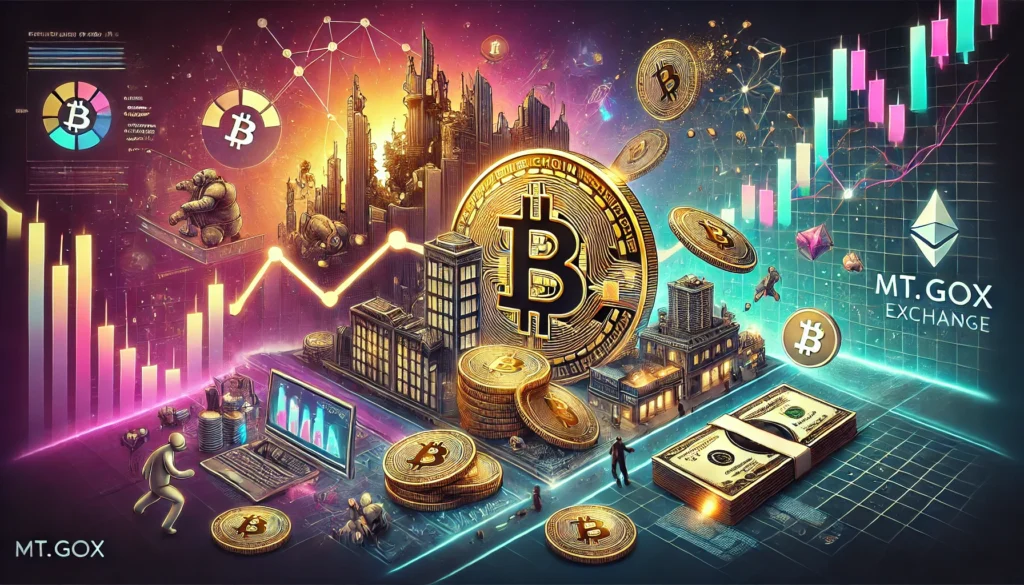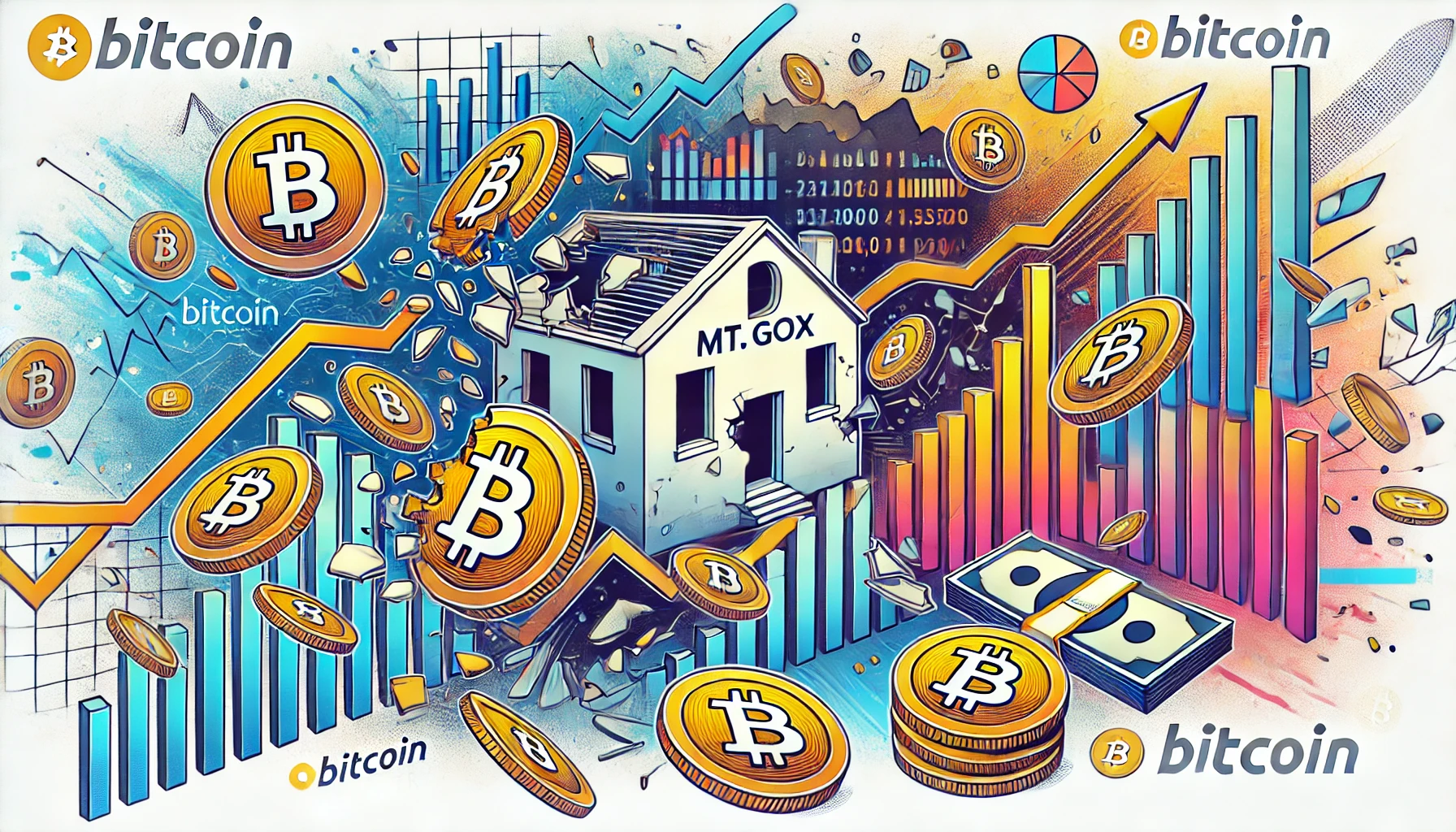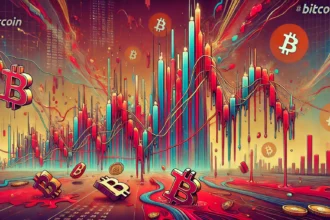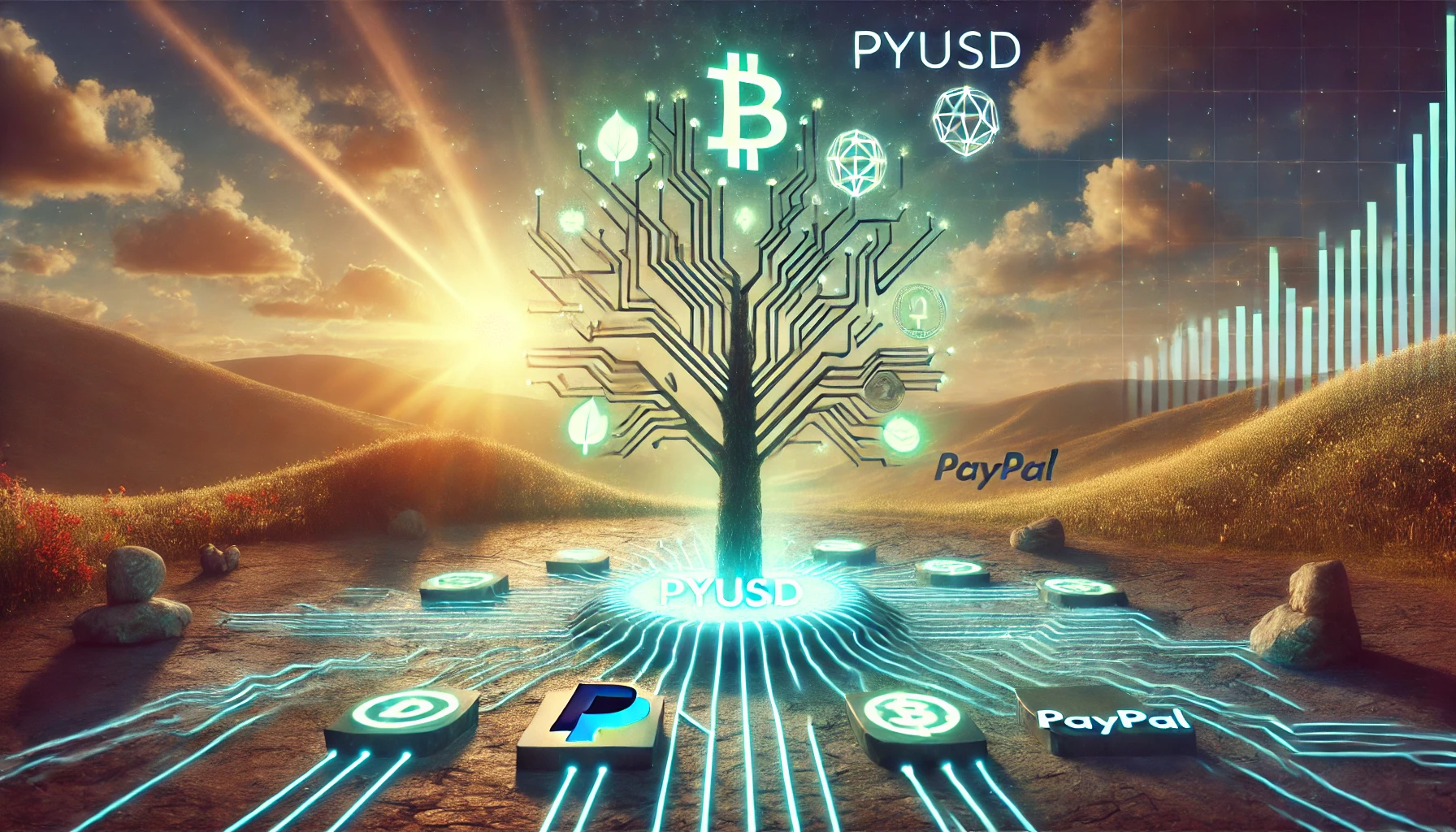Mt. Gox, once the world’s largest Bitcoin exchange, has initiated the repayment process for its creditors, marking a significant milestone in the aftermath of one of the most infamous events in cryptocurrency history. A substantial transfer of $2.7 billion in Bitcoin has been made to a new wallet as part of this process. Analysts estimate that nearly 99% of Mt. Gox’s $8.2 billion in Bitcoin might be sold, which could have a substantial impact on the market. This article delves into the history of Mt. Gox, the repayment process, the market impact, and the broader implications for the cryptocurrency ecosystem.
History of Mt. Gox
Mt. Gox was founded in 2010 by Jed McCaleb and was initially a site for trading Magic: The Gathering Online cards. The name “Mt. Gox” stands for “Magic: The Gathering Online eXchange.” Recognizing the potential of Bitcoin, McCaleb transformed the platform into a Bitcoin exchange, which quickly gained popularity. In 2011, McCaleb sold the site to Mark Karpeles, a French developer living in Japan. Under Karpeles’ management, Mt. Gox grew to handle over 70% of all Bitcoin transactions worldwide by 2013, making it the dominant exchange in the market.
However, despite its rapid growth, Mt. Gox was plagued by security issues and operational inefficiencies. In 2014, the exchange suspended trading, closed its website, and filed for bankruptcy protection. The company announced that approximately 850,000 Bitcoins, worth around $450 million at the time, were missing and likely stolen. This event caused a massive uproar in the cryptocurrency community and led to significant financial losses for many users. The collapse of Mt. Gox was a wake-up call for the industry, highlighting the need for better security practices and regulatory oversight.
The Repayment Process Explained
The repayment process for Mt. Gox creditors has been long and complex, involving multiple legal battles and significant delays. After years of legal wrangling, Nobuaki Kobayashi was appointed as the trustee to oversee the repayment process. The primary tasks of the trustee included identifying and securing the remaining assets, verifying creditor claims, and developing a plan for distributing the funds.
One of the most critical steps in the repayment process was the recent transfer of $2.7 billion in Bitcoin to a new wallet. This transfer signifies that the trustee is moving forward with plans to distribute the funds to creditors. It also indicates that substantial assets have been secured and are ready for disbursement. The repayment process involves several steps:
- Identification and Security of Assets: The trustee had to locate and secure the remaining Bitcoins and other assets of Mt. Gox. This involved extensive investigations and collaboration with various stakeholders.
- Verification of Claims: Creditors were required to file claims to recover their lost funds. The verification process was rigorous, involving the validation of transaction records and other documentation.
- Transfer of Funds: The recent transfer of $2.7 billion in Bitcoin to a new wallet is a significant milestone. This step was crucial for ensuring the security of the assets before distribution.
- Distribution to Creditors: The final step involves the actual distribution of funds to verified creditors. This will likely be done in several phases to manage the process efficiently and minimize market disruption.
Potential Market Impact
The potential sale of nearly 99% of Mt. Gox’s $8.2 billion in Bitcoin could have a significant impact on the market. The sale of such a large amount of Bitcoin is expected to increase market volatility and could potentially drive down prices. Market participants are closely monitoring these developments to gauge the potential effects.
- Sponsored -

To understand the potential market impact, it is essential to consider both short-term and long-term effects. In the short term, the sale of a large volume of Bitcoin could lead to increased supply in the market, which might result in downward pressure on prices. This could trigger a chain reaction as other investors may panic and sell their holdings, further driving down prices.
However, the long-term impact remains uncertain. Some analysts believe that the market has already priced in the potential sale of these Bitcoins, and the actual impact may be less severe than anticipated. Others argue that the sale could provide a buying opportunity for long-term investors, ultimately leading to a stabilization and recovery of prices.

Bitcoin ETF: A New Frontier
The introduction of Bitcoin Exchange-Traded Funds (ETFs) has been a significant development in the cryptocurrency world. A Bitcoin ETF is a type of investment fund and exchange-traded product that holds Bitcoin as its primary asset. ETFs are traded on traditional stock exchanges, making it easier for investors to gain exposure to Bitcoin without having to buy the cryptocurrency directly.
Benefits of Bitcoin ETFs
- Accessibility: Bitcoin ETFs provide an accessible way for traditional investors to gain exposure to Bitcoin. Investors can buy and sell ETF shares through their regular brokerage accounts, making it as simple as trading stocks.
- Regulation: ETFs are regulated financial products, which means they must adhere to strict guidelines and oversight. This adds a layer of security and trust for investors who may be wary of the largely unregulated cryptocurrency market.
- Diversification: Bitcoin ETFs allow investors to diversify their portfolios by adding exposure to Bitcoin without needing to manage the complexities of owning and storing the cryptocurrency.
- Liquidity: ETFs are highly liquid assets, meaning they can be easily bought and sold on the stock exchange. This provides flexibility for investors looking to enter or exit their Bitcoin positions quickly.
Impact on the Bitcoin Market
The approval and launch of Bitcoin ETFs can have a profound impact on the market. The increased accessibility and legitimacy brought by ETFs can drive significant inflows of institutional and retail investments into Bitcoin. This could lead to higher demand and potentially boost the price of Bitcoin. Moreover, the regulation and oversight associated with ETFs can help mitigate some of the risks and uncertainties that have historically plagued the cryptocurrency market.
However, Bitcoin ETFs also present certain challenges. The introduction of these products could lead to increased volatility, as large amounts of Bitcoin may be bought or sold in response to market demand for ETF shares. Additionally, the success of Bitcoin ETFs depends on the broader acceptance and adoption of Bitcoin as a legitimate asset class.
What This Means for Crypto Investors
The Mt. Gox repayments are a significant event for crypto investors, highlighting both the risks and opportunities in the market. For investors, it underscores the importance of due diligence, secure trading practices, and staying informed about market developments.
Investors should consider the following:
- Volatility: The cryptocurrency market is inherently volatile, and events like the Mt. Gox repayments can exacerbate this volatility. Investors need to be prepared for price fluctuations and have a clear investment strategy.
- Regulatory Environment: The Mt. Gox case has spurred discussions about the need for better regulatory oversight of cryptocurrency exchanges. Investors should be aware of the regulatory landscape and how it might affect their investments.
- Security Practices: The collapse of Mt. Gox highlights the importance of security in the cryptocurrency space. Investors should prioritize using secure exchanges, implementing strong security measures, and staying vigilant against potential threats.
- Long-Term Perspective: While the short-term impact of the Mt. Gox repayments may cause volatility, the long-term outlook for Bitcoin and the broader cryptocurrency market remains positive. Investors with a long-term perspective may find buying opportunities during periods of market instability.
Conclusion
The Mt. Gox repayment process and the advent of Bitcoin ETFs are landmark events in the cryptocurrency world. As the defunct exchange begins distributing funds to its creditors and ETFs provide new investment avenues, the implications for the market are profound. The lessons learned from Mt. Gox will shape the future of cryptocurrency regulation and investor protection, ensuring a more secure and transparent market for all participants. Investors must stay informed, be prepared for market volatility, and continue to prioritize security in their cryptocurrency dealings.
FAQs
What happened to Mt. Gox?
Mt. Gox, once the world’s largest Bitcoin exchange, collapsed in 2014 after announcing that approximately 850,000 Bitcoins were missing and likely stolen. This led to the exchange suspending trading, closing its website, and filing for bankruptcy protection.
Who is responsible for the repayments to Mt. Gox creditors?
Nobuaki Kobayashi, the appointed trustee, is overseeing the repayment process to creditors. His responsibilities include identifying and securing the remaining assets, verifying creditor claims, and distributing the funds.
How much Bitcoin is involved in the Mt. Gox repayment process?
Nearly 99% of Mt. Gox’s $8.2 billion in Bitcoin might be sold as part of the repayment process. The recent transfer of $2.7 billion in Bitcoin to a new wallet is a critical step towards this distribution.
What is a Bitcoin ETF and how does it impact the market?
A Bitcoin ETF is an investment fund that holds Bitcoin and is traded on traditional stock exchanges. It provides an accessible, regulated way for investors to gain exposure to Bitcoin without buying the cryptocurrency directly. Bitcoin ETFs can drive significant inflows of investment into Bitcoin, potentially increasing demand and price, but also adding to market volatility.
How might the Mt. Gox repayments affect the Bitcoin market?
The potential sale of a large volume of Bitcoin from Mt. Gox repayments could lead to increased market volatility and downward pressure on prices. However, the long-term impact may be less severe if the market has already priced in these sales, and it could present buying opportunities for long-term investors.













